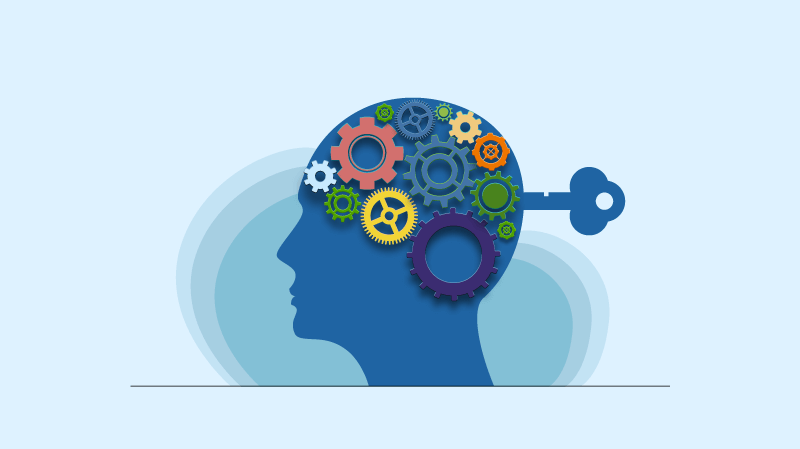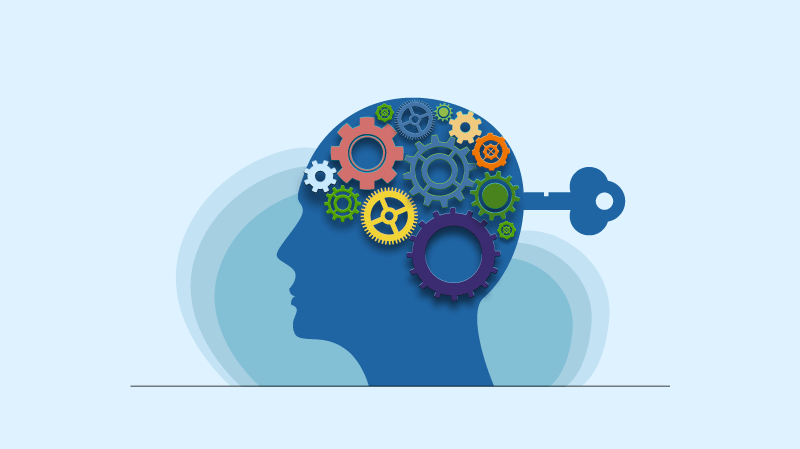Are you struggling with Attention Deficit Disorder (ADD)? Do you find it challenging to focus on tasks, stay organized or manage your time effectively? If so, cognitive-behavioral therapy (CBT) could be the answer to help you overcome these difficulties. In this blog post, we will delve into everything there is to know about CBT for ADD and how it can improve your symptoms and overall quality of life. So sit back, relax, and let’s dive right in!
Contents
What is ADD?

ADD, or Attention Deficit Disorder is a neurological disorder that affects the way the brain processes information. People with ADD have difficulty sustaining attention, controlling impulsive behaviors, and regulating emotions. While ADD can be diagnosed in children as young as four years old, it is often not diagnosed until later in life. The symptoms of ADD can vary from person to person but typically include problems with focus, hyperactivity, impulsivity, and emotional regulation.
CBT, or cognitive behavioral therapy, is a type of therapy that is effective in treating ADD. Also, CBT helps people with ADD learn to manage their symptoms by teaching them new ways of thinking and behaving. CBT can help people with ADD improve their ability to focus and pay attention, control impulsive behaviors, and better regulate their emotions.
How Does CBT Help with ADD?

Many different techniques of cognitive behavioral therapy (CBT) can help people with attention deficit disorder (ADD). CBT helps individuals identify self-defeating beliefs and behaviors, as well as modify these to better cope with ADD. By working closely with a therapist, an individual can learn how to use CBT strategies to make positive changes in their life.
Some of these techniques are:
Cognitive Restructuring
One of the most effective techniques for helping people with ADD is cognitive restructuring. This involves having the individual identify and challenge his or her negative thoughts, such as “I can’t do anything right” or “I’m so stupid”. By doing this, the individual can learn to replace these self-defeating beliefs with more positive and rational thoughts.
Behavioral Activation
Another helpful technique is behavioral activation, which encourages the individual to become more engaged in activities that are meaningful and enjoyable. The therapist helps the individual to make a plan for becoming more active by setting realistic goals and breaking them down into achievable steps. This can help reduce feelings of hopelessness and improve motivation.
Stress Management
CBT also includes stress management techniques such as relaxation exercises, breathing techniques, and progressive muscle relaxation. These can help an individual with ADD better manage their emotions during difficult situations. These also help to reduce anxiety and improve concentration.
Exposure Therapy
Another technique of CBT is exposure therapy. This involves slowly and gradually exposing the individual to a situation or activity that they are afraid of, such as public speaking or taking tests. By facing these situations in a safe environment, they can become desensitized to them and eventually overcome their fear.
Problem-Solving Skills
CBT also helps people with ADD develop problem-solving skills so that they can more easily find solutions to life’s challenges. The therapist will work with the individual to identify a problem and then teach them strategies for finding solutions. This can include brainstorming, breaking down tasks into manageable steps, and seeking out social support.
Role Playing
An additional technique of CBT for ADD is role-playing. This involves having the individual practice a skill in a safe and controlled environment with their therapist or other family members. For example, they may practice how to make small talk with someone at work or how to better manage their time. Role-playing can help reduce stress and build confidence while learning new skills.
Overall, CBT is an effective treatment for ADD. By using a combination of these techniques, individuals can learn how to better manage their symptoms and live a more fulfilling life.
What Happens in a CBT Session for ADD?

ADD is a condition that can often be effectively treated with CBT. In a CBT session for ADD, the therapist will work with the person with ADD to help them identify and change negative thoughts and behaviors that are contributing to their symptoms. The therapist will also teach the person with ADD skills that can help them to better manage their condition.
The therapy sessions of CBT for ADD typically include discussion and exercises that the person can do at home to help them with their symptoms. Examples of these exercises may include relaxation techniques, journaling, or cognitive restructuring (changing negative thoughts into more balanced and rational ones).
The working of CBT with ADD can also be customized depending on the individual’s needs. In some cases, relaxation techniques such as mindfulness meditation may be used to help reduce stress and anxiety. In other cases, self-regulation skills may be taught to help the person better manage their emotions.
Pros and Cons of CBT for ADD
Everything has its pros and cons of course, and Cognitive Behavioral Therapy (CBT) for Attention Deficit Disorder is no exception.
PROS
The pros of using CBT for ADD include:
- A proven approach to treating symptoms of ADD is because it focuses on the thought process and behavior which can cause ADD-related issues.
- It has been found to help with It can help people with ADD identify and manage their symptoms, challenges, and behaviors.
- CBT teaches techniques to help people become aware of unhelpful thoughts, challenge them, and replace them with more positive thinking.
- It also helps build self-esteem and establish better communication with family, friends, and other loved ones.
CONS
However, like all treatments, CBT also has some potential drawbacks. These include:
- The need for commitment: CBT requires a significant amount of time and effort on the part of the person receiving treatment as well as their therapist. Treatment usually lasts for several months and typically requires weekly sessions. Without a commitment to attending sessions regularly and doing the work outside of therapy, CBT is unlikely to be successful.
- Limited evidence: While CBT has been studied extensively and has a strong body of evidence behind it, research on its use for ADD is still limited. The evidence also shows that it is not effective for everyone.
- Cost: Depending on where you live and your insurance coverage, the cost of therapy can be quite high. Additionally, if you are receiving treatment from an individual therapist instead of a group setting, costs can be even higher.
- Emotional discomfort: CBT often requires people to confront uncomfortable or painful emotions, which can be difficult for some individuals. Therefore, finding a therapist who is experienced in CBT and supportive of the individual’s needs is important.
Overall, CBT can be an effective treatment for ADD but it is important to weigh the pros and cons before deciding whether or not to pursue this type of therapy.
Alternatives to CBT for ADD

There are many different types of therapy for ADD, and each has its advantages and disadvantages. Some people prefer to try a different type of therapy before they settle on CBT, while others find that CBT is the best fit for their needs. Here are some alternatives to CBT for ADD:
- Medication: Medication can be an effective way to manage the symptoms of ADD. Stimulants are the most commonly prescribed medications for this condition, but there are other options available as well.
- Counseling: Counseling can help people with ADD learn how to cope with their symptoms and manage their day-to-day lives. It can be helpful to talk to someone who understands what you’re going through and can offer support and guidance.
- Nutrition: Eating a healthy diet is important for everyone, but it can be especially helpful for people with ADD. Certain foods can help improve focus and concentration, so it’s worth exploring this option if you’re looking for alternative treatments.
- Exercise: Exercise is a great way to relieve stress and improve your overall health. It can also help improve focus and concentration. Also, it’s free and doesn’t require a prescription or a therapist.
Conclusion
Cognitive Behavioral Therapy (CBT) is a successful treatment for ADD. It can help reduce symptoms, improve functioning, and empower individuals to take control of their lives. CBT for ADD is an evidence-based practice that has helped countless people improve the quality of their lives. If you think that CBT could be beneficial for yourself or someone you know, make sure to speak with a mental health professional who can offer guidance and support on this journey.
For more information, please contact MantraCare. ADHD is a neurodevelopmental disorder characterized by difficulty paying attention, hyperactivity, and impulsivity. If you have any queries regarding Online ADHD Counseling experienced therapists at MantraCare can help: Book a trial ADHD therapy session


